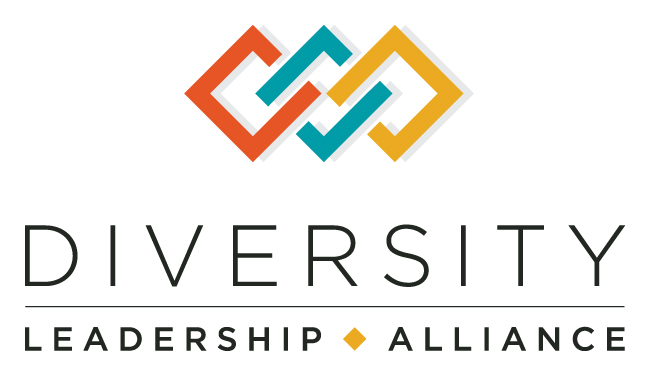In today’s rapidly evolving professional world, continuous learning and strategic networking are not just advantageous—they are essential. For professionals committed to driving positive change, fostering inclusive environments, and honing their leadership acumen, attending the right conferences can be a transformative experience. This comprehensive guide delves into the most impactful equity and leadership conferences, offering insights into why they matter and how they can accelerate your journey towards becoming a more effective and equitable leader.
The Imperative of Specialized Conferences in Modern Leadership
The modern leader faces multifaceted challenges, from navigating global economic shifts to fostering diverse and inclusive workplaces. Specialized conferences offer a unique platform to address these complexities. They provide access to cutting-edge research, best practices, and innovative strategies from thought leaders across various industries. More than just a series of presentations, these gatherings are dynamic hubs for networking, collaboration, and personal reflection, enabling participants to gain fresh perspectives and forge invaluable connections.
Understanding the Dual Pillars: Equity and Leadership
While seemingly distinct, equity and leadership are inextricably linked. Effective leadership in the 21st century demands a deep understanding of equity – ensuring fair treatment, access, opportunity, and advancement for all, while striving to identify and eliminate barriers that have prevented the full participation of some groups. Conferences that intertwine these themes provide a holistic approach to professional development, equipping leaders not only with strategic skills but also with a profound sense of social responsibility.

Best Leadership Conferences to Consider
Leading a team or an organization requires a continuous refresh of skills and perspectives. The following types of conferences consistently rank high for their content, speakers, and networking opportunities:
- Global Leadership Summits: These often attract C-suite executives and offer macro-level insights into geopolitical trends, economic forecasts, and global market strategies. They are ideal for senior leaders looking to gain a broader understanding of the forces shaping the future of business.
- Industry-Specific Leadership Forums: Tailored to particular sectors (e.g., tech leadership, healthcare leadership), these conferences provide deep dives into challenges and innovations unique to that industry, fostering targeted solutions and peer-to-peer learning.
- Innovation and Disruptive Leadership Conferences: For those aiming to be at the forefront of change, these events focus on emerging technologies, entrepreneurial thinking, and strategies for leading through periods of rapid transformation.
- Executive Coaching and Development Retreats: Often more intimate, these gatherings provide intensive workshops and personalized coaching to refine specific leadership competencies such as communication, emotional intelligence, and strategic planning.
Championing Fairness: Best Equity Conferences for a Just Future
Equity conferences are vital for professionals dedicated to creating inclusive and just environments. These events focus on actionable strategies for diversity, equity, and inclusion (DEI), addressing systemic inequalities and promoting belonging.
- Diversity, Equity, and Inclusion (DEI) Summits: These are broad-based conferences that cover various aspects of DEI, from unconscious bias training and inclusive hiring practices to creating equitable organizational cultures. They are essential for HR professionals, DEI practitioners, and anyone committed to fostering inclusive workplaces.
- Workplace Equity and Anti-Racism Conferences: More focused on addressing systemic racism and promoting anti-racist practices within organizations, these events provide tools and frameworks for dismantling barriers and fostering truly equitable opportunities.
- Gender Equity and Women in Leadership Conferences: These events specifically address issues related to gender disparities in leadership and professional advancement, offering strategies for empowerment, mentorship, and breaking glass ceilings.
- Accessibility and Inclusion Conferences: These focus on ensuring that spaces, products, and services are accessible to individuals with disabilities, promoting universal design principles and inclusive practices.
The Synergy of Impact: Social Equity Leadership Conferences
The intersection of social equity and leadership is where truly transformative change occurs. Social equity leadership conferences are designed for individuals who aspire to lead with purpose, integrating principles of fairness and justice into their leadership styles and organizational strategies.
These conferences often feature:
- Case Studies on Social Impact: Real-world examples of how organizations and leaders have successfully addressed social inequities.
- Workshops on Inclusive Policy Development: Practical sessions on crafting policies that promote equity within organizations and communities.
- Discussions on Ethical Leadership: Exploring the moral dimensions of leadership and the responsibility of leaders to advocate for social justice.
- Networking with Changemakers: Connecting with fellow professionals, activists, and community leaders who are driving social change.
These platforms are particularly valuable for non-profit leaders, public sector professionals, CSR (Corporate Social Responsibility) executives, and anyone committed to leveraging their leadership for broader societal benefit.
Key Considerations When Choosing a Conference
With a multitude of conferences available, selecting the right one can be challenging. Here are some key factors to consider:
- Relevance to Your Goals: Does the conference align with your current professional development needs and long-term career aspirations?
- Speaker Lineup: Are the speakers recognized experts and thought leaders in their fields? Do they offer diverse perspectives?
- Networking Opportunities: Does the conference facilitate meaningful connections through structured networking sessions, interactive workshops, or informal gatherings?
- Format and Content: Does the format (e.g., keynotes, breakout sessions, hands-on workshops) suit your learning style? Is the content practical and actionable?
- Cost and Location: Is the investment (registration fees, travel, accommodation) justifiable given the potential return?
- Reputation and Reviews: What do past attendees say about their experience?

Impact of Leadership Development and DEI Initiatives
To illustrate the tangible benefits of investing in leadership development and DEI, consider the following data. While specific conference impacts can be hard to quantify directly, the broader benefits of the themes they cover are well-documented.
Area of Impact % Increase (Average) Description
Employee Engagement 20-30% Organizations with strong leadership development programs and DEI initiatives report significantly higher employee engagement. Engaged employees are more productive and committed.
Innovation & Creativity 15-20% Diverse teams, fostered by equitable practices, are more likely to generate innovative ideas and solutions. Leadership fostering inclusive environments encourages open idea sharing.
Financial Performance 10-15% Companies in the top quartile for gender and ethnic diversity are more likely to have financial returns above their national industry medians. Strong leadership also directly correlates with improved profitability.
Talent Attraction & Retention 25-35% A positive reputation for leadership development and DEI makes an organization significantly more attractive to top talent and helps in retaining existing employees, reducing turnover costs.
Problem Solving 20-25% Diverse perspectives brought about by equity initiatives, combined with effective leadership, lead to more comprehensive and effective problem-solving, avoiding “groupthink.”
Brand Reputation Qualitative but Significant Organizations known for their commitment to equitable leadership and inclusive practices often enjoy a stronger brand reputation, leading to increased customer loyalty and trust, as well as improved partnerships.
Note: These percentages are indicative averages based on various industry reports and academic studies on the impact of leadership development and Diversity, Equity, and Inclusion (DEI) initiatives. Actual results may vary based on specific implementation and organizational context.

Conclusion
Attending top equity and leadership conferences is more than just professional development; it’s an investment in your future and the future of your organization. These events provide unparalleled opportunities to learn from the best, network with peers, and gain actionable insights that can propel your career and impact societal change. By carefully selecting conferences that align with your goals, you can ensure a significant return on your investment, both personally and professionally.
At the Diversity Leadership Alliance, we are committed to fostering inclusive leadership and driving equitable outcomes. Our programs, workshops, and thought leadership initiatives are designed to equip leaders with the knowledge, skills, and perspectives necessary to navigate complex challenges, champion diversity, and build truly inclusive environments. We understand the critical link between effective leadership and social equity, and our tailored solutions are crafted to empower individuals and organizations to achieve both. Explore our offerings today to discover how we can support your journey towards impactful and equitable leadership.

Frequently Asked Questions (FAQs)
1. How do I choose the right leadership conference for my career stage?
Consider your current role, desired skills, and long-term career goals. Early-career professionals might benefit from foundational leadership skills conferences, while senior leaders may seek strategic and global summits. Research speakers, agendas, and attendee demographics to find the best fit.
2. What are the key benefits of attending an equity-focused conference?
Equity-focused conferences provide strategies for fostering diverse and inclusive workplaces, address systemic biases, and offer tools for creating equitable opportunities. Benefits include enhanced understanding of DEI principles, networking with DEI experts, and actionable insights to implement in your organization.
3. How can I maximize my networking opportunities at a conference?
Plan ahead by identifying key attendees and speakers you wish to connect with. Utilize conference apps for scheduling meetings, actively participate in Q&A sessions, and attend networking events. Don’t be afraid to initiate conversations and follow up promptly after the conference.
4. Are virtual conferences as effective as in-person ones?
Virtual conferences offer accessibility and cost-effectiveness, often providing similar content and speakers. While in-person events offer a more immersive networking experience, virtual platforms have improved significantly, offering interactive features and breakout rooms that can facilitate meaningful engagement. The effectiveness often depends on your learning style and goals.
5. How can organizations leverage conference attendance for broader impact?
Organizations can encourage employees to share key takeaways with colleagues, implement new strategies learned, and apply best practices. Many conferences offer group rates or corporate training packages. Supporting employee attendance demonstrates a commitment to professional development and creates a culture of continuous learning and innovation within the organization.


